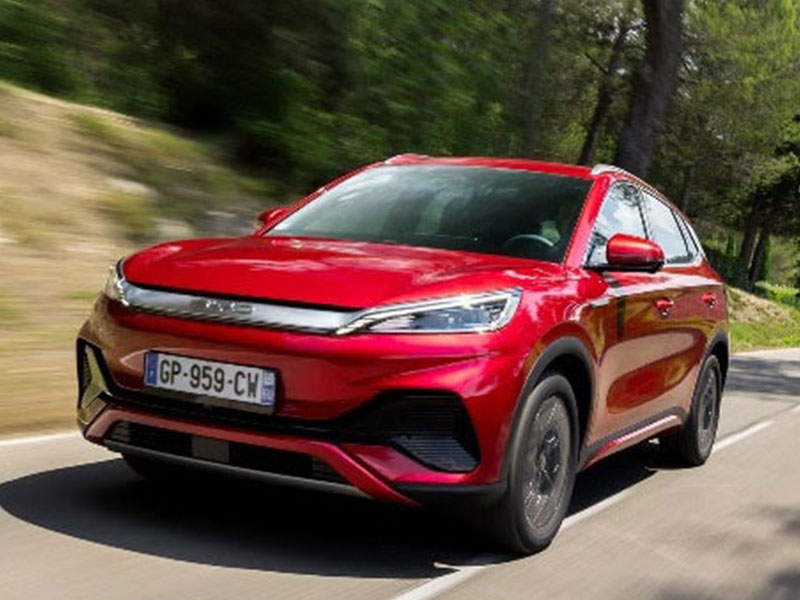China’s BYD sold more electric vehicles worldwide than Tesla in the final quarter of 2023. BYD sold around 526,000 EVs in the three months to the end of the year, compared with Tesla’s 484,000. With a total of 1.8 million vehicles Tesla still finished 2023 as the world’s largest producer of EVs, a record it has held since 2015. But BYD, which produced almost 1.6 million EVs in 2023 in addition to 1.4 million plug-in hybrids, is clearly closing what’s become a tiny gap headed into a new year.
BYD’s performance is currently underpinned by its strong presence in its home market, where it enjoys a 35 percent market share. Three of its models—the Yuan Plus, the Seagull, and the Dolphin—are the top-selling EVs in China, and the company has a total of six models among the 15 most popular EVs in the country. Tesla’s Model Y is China’s fifth best-selling EV, but it is the only vehicle from the American EV pioneer among the top 15.
No single BYD model is likely to dethrone the Tesla Model Y SUV as the world’s best-selling EV in the short term, but the company has aggressive plans to boost EV sales in markets outside China over the coming years. In Europe, where Tesla last year sold more than 210,000 Model Ys, BYD says it plans to be selling 800,000 EVs annually by 2030. The Chinese automaker already has five models on sale in Europe and aims to launch a further three EVs this year.
BYD has also announced plans to build a new factory in Hungary, most likely to counter moves by the European Commission, which has become alarmed at the prospect of cheap Chinese EVs flooding the market and damaging the European auto industry. The Commission has launched an investigation into whether the low prices of Chinese EVs may be the result of illegal subsidies.
Though BYD revealed an electric crossover, the e6, at the 2010 Detroit Show, along with plans to offer the car to U.S. consumers in the second half of that year that fell to nothing, the company has been careful not to talk about launching any of its more modern, current EV lineup here.
That’s no doubt due to current political and trade tensions between the U.S. and China. The Joe Biden administration has already blocked full subsidies to EV companies with significant Chinese links. To protect the U.S. clean energy sector, Washington D.C. leadership is also reportedly looking at raising tariffs on Chinese EVs beyond the 25 percent levied on imported Chinese autos brought in under former President Donald Trump.







